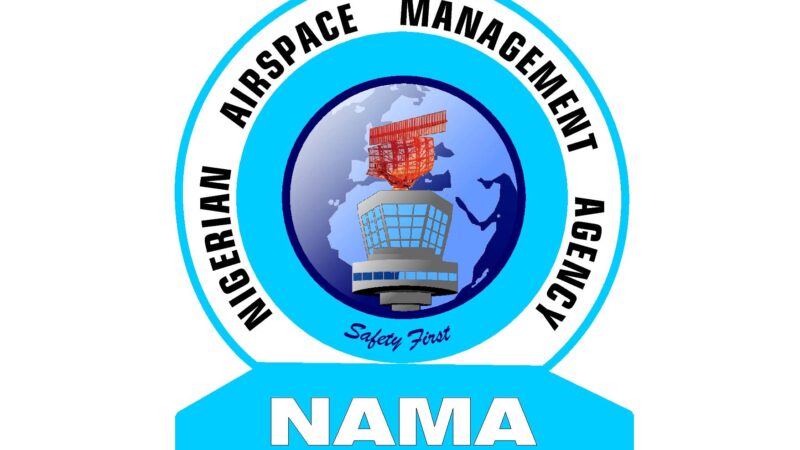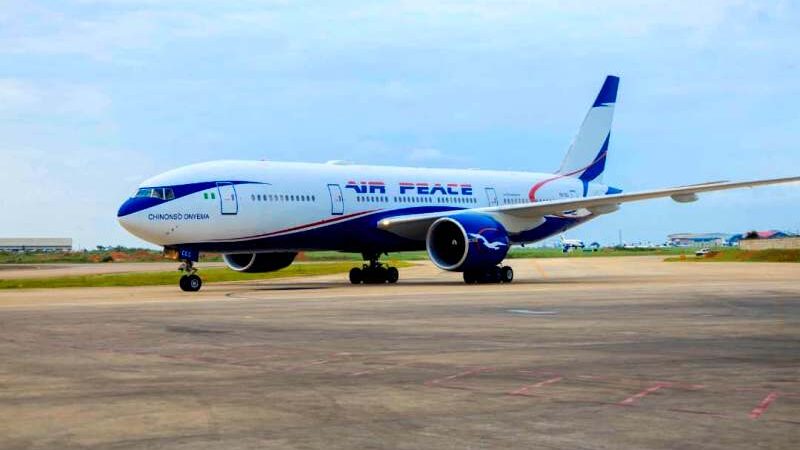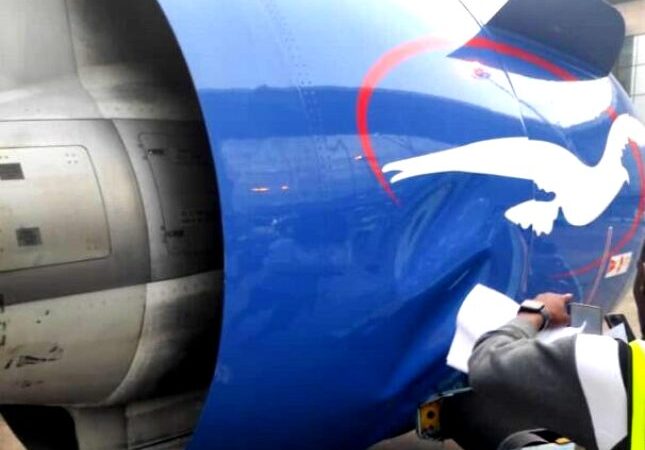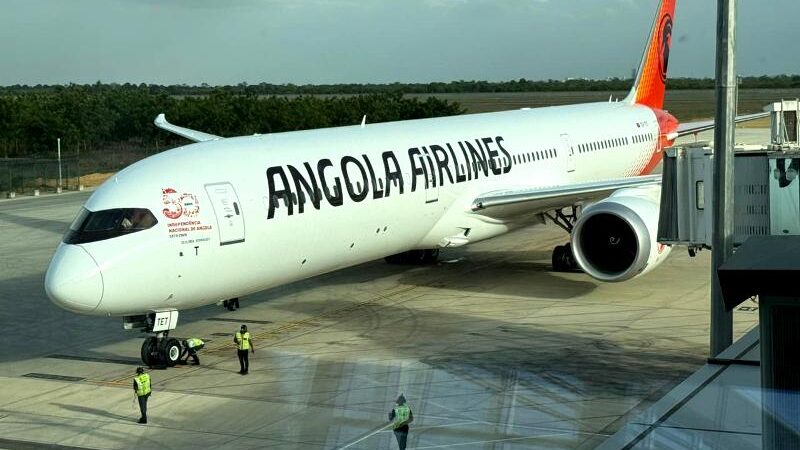FMAA Applauds Najomo’s Vision On Drones As NCAA Receives Over 300 Applications
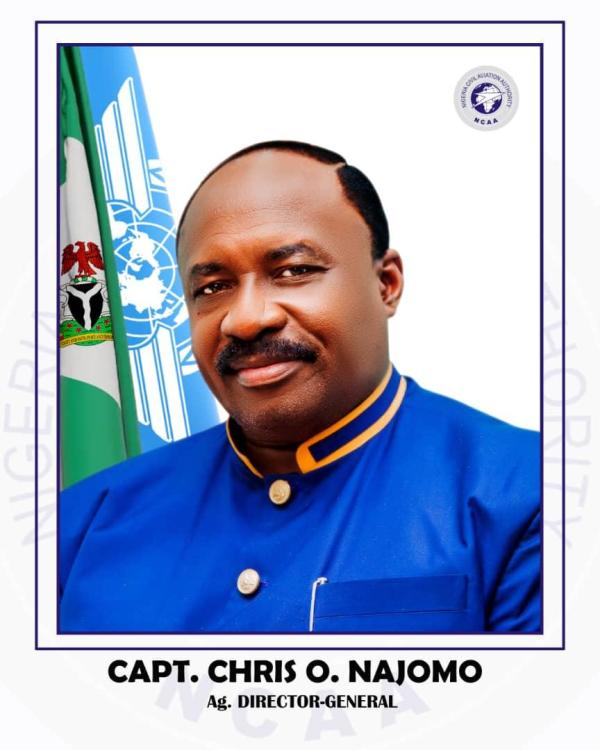
The Federal Ministry of Aviation & Aerospace Development has described the setting up of a dedicated Unmanned Aircraft Systems unit by the Nigeria Civil Aviation Authority (NCAA) as visionary and one that will aid and accelerate the country’s quest to control and coordinate the increasing numbers of the use of the technology in Nigeria.
The Minister, Festus Keyamo (SAN) who was represented by the Permanent Secretary in the ministry, Dr. Emmanuel Meribole who toured the NCAA drone portal and declared open the UAS Integration Unit at the NCAA’s headquarter Annex in Lagos as part of his activities at the 4th Drone Texc Conference and Exhibition held in Lagos, said the ministry would ensure the success and growth of the unit by making provisions for training and manpower development in the unit so that they can effectively oversee the use and operations of Unmanned Aerial Vehicle (UAV) otherwise known as drone technology across the country.
Meanwhile, the NCAA says it has received over 300 applications from operators for NCAA certification of different types of UAV across Nigeria.
Dr. Meribole called for collaborations with key stakeholders and leveraging the use of technology in order to achieve the vision of the unit, affirming that the ministry will give it support and commended the vision of the Director General, Civil Aviation, Capt. Chris Najomo.
Responding to requests by staff of the unit, the Permanent Secretary said “I have heard all your requests and challenges. One of the take away from here which I will gladly impress on the minister is that you need training. Of course, you need to bring it up for us to see how we can find resources to help you meet that.
“Secondly, we need to leverage technology. Leveraging technology has many parts, simple application processes, simple approval and simple collaboration processes. For you to prevent non-state actors, you need to identify who among them is not registered with you. So, the local law enforcement will also have to come in.”
He said: “I don’t know how many staff you have, but you can’t go round the country. It is either you enter into collaborations by certifying the people that you have to do the work so that you have a value chain addition as you go round and of course, the most important thing in all these is that you have a visionary leader at NCAA who is driving all these things.
“No matter the kind of support the minister gives, you need visionary leadership to ensure that we succeed. We also expect you to lead the way and we also expect you to think out of the box. We have critical thinkers as we move on. I am going to pass your message to the honourable minister and I can assure you that we are going to give you all the support.”
Also speaking, the Regional Manager, Lagos of the NCAA, Bukola Teriba Esq. explained that the part 21 regulation document developed for the operations of drones is not only good for the NCAA but also for Nigeria. She described the vehicles as mystic in the sky and affirmed that its regulations are important for the aviation industry.
Bukola commended the Permanent Secretary and the Director General, Civil Aviation, Capt. Chris Najomo for the historic feat saying: “Congratulations to you for being part of this. History will record that this feat was achieved during your time. For us here, we will not forget to thank the Director General whose bold initiatives it was to take up that singular task of identifying and has set up a dedicated drone desk in the agency.”
She added that “His predecessors have been pulling inspectors from different units or directorates. Most times, these inspectors were also saddled with other responsibilities from the demanding aviation systems and dedicating little or no time for the UAS integration project. For the Director General himself, he took the bull by the horns and answered the clarion calls from operators especially looking at the overwhelming applications that we have received over time.
“He must be strongly commended for setting up a dedicated desk to anchor all the UAS industry applications and requests. Another is the strong will to make work very well and function. The Director General is still very supportive of the unit.”
On her part, NCAA Assistant General Manager, Licensing and UAS representative to the International Civil Aviation Organization (ICAO) Remotely Piloted Aircraft System (RPAS) Panel, Collette Onyeulo disclosed that the CAA is better positioned and well equipped now to address all the expectations of requests from different users who wish to obtain licenses for drone operations.
According to her, the unit needs to hit the ground running saying currently, “we have over 300 applications for drone licenses. So, it is a handful for us.”
She told the visiting Perm Sec that “When you talk about collaborations, we are going to need them. Part of it is that what ICAO has come out with. Drones are allowed to operate in three categories. One is the open category. This category is where we have the big question mark because that is where you have the hobbies and recreational use of the drone and the NCAA doesn’t currently have any regulation covering that.”
However, Collette said: “what we are afraid of is the small drones that could be used to create mayhem. So, our appeal today sir is that we need support, support in the sense that the CAA through the unit is equipped to come up with a robust regulation. One of the ways we have brought this out is that a portal, just as it is done in other climes, can be created.”
“We appeal that inspectors drawn from different departments be trained and retrained on this because this is not what we know. Even ICAO is still starting and learning on this. So, we have presented that when we have a portal just as it is done in the US, the FAA, for recreational drones, the paperwork would be overwhelming.
We desire to set up a user friendly portal so that every information we need about you, you provide, and then, there is that interface with NSA because the NSA has always been there because of the security implications of the drone and has also given a cap that we cannot go beyond 25 kg. We say that is fine. That is okay.”
“Once we get everything we need to know about anyone who made a request on the portal, we will assign a unit ID to that person. With that ID whether you are operating from Taraba, we know we already have all your data and on that same portal, we can now create simple rules of the air that a layman can understand, even if we need to present them in our local languages, they can be done. It will also help the customs in its clearance procedures and simplify the drone acquisition and its user procedure because the portal will act as a one stop shop location.”
She added “Sir, these need both resources. They need time, energy and overwhelming support. So sir, we are glad that we have the father of the house that will take this matter. For us, we already have the support of the CAA under the able leadership of the Director General that is helping us to make headway.”
“So, training and retraining is key for the unit. We intend to collaborate with the training school and with some of the ROC holders to start up an incubation training school. We need to designate and localize these things. But firstly, let the inspectors and those in the unit be trained.”
“It will also be good for them to do an On-the-Job-Training because they need to know how it is done in the US, in Kenya, South Africa and other countries because we have read a lot about the practices in other countries, and we have joined webinar classes. We need to have hands- on experience, and then a robust framework like the organizer of the Dronetect is very critical.”

